
2006-2007 Concert Series
2007-2008 2006-2007 2005-2006 2004-2005 2003-2004 2002-2003 Earlier Concerts Home
- Thurs., Sept. 21: Fergus O'Byrne and Jim Payne (House Concert)
- Sat., Oct 21: Gordon Bok
- Sat., Nov. 11: Sally Rogers and Howie Bursen
- Thurs., Nov 16: Peter Shepheard, Tom Spiers & Arthur Watson (House Concert)
- Sat., Dec 2: The Short Sisters
- Sun., Dec. 3: Pub Carol Sing at Doyle's, JP
- Sat., Jan 20: Annual FSSGB Members' Concert
- Sat., Feb 3: David Jones
- Sat., March 10: Sea Songs and Ballads of Newfoundland
- Sat., March 24: Benefit concert with Jaded Mandolin
- Sat., April 7: Sparky and Rhonda Rucker
- Fri., April 13: Brian Peters (House Concert)
- Sat., May 5: Don Pedi
- Fri., June 1: Robert Tannahill: an Illustrated Lecture by Dr. Fred Freeman
- Fri., June 15: Louis Killen (House Concert)
- Thurs., July 19: Danny Spooner (House Concert)
Fergus O'Byrne and Jim Payne (House Concert)
Thursday, September 21, 2006, 8pmBrookline, MA
$12 for all; reservations required.
Email Suzanne Mrozak (suzanne at smrozak dot com)
for reservations/directions.
Jim Payne is from Notre Dame Bay, Newfoundland and has been a professional performing artist and writer for 19 years. Long known as a leading performer and collector of Newfoundland traditional music, he is also one of the province's most prolific songwriters, working in several genres. Jim has directed, composed and performed music for some of the most popular theatre productions of the past two decades, as well as creating soundtracks for plays, documentaries and videos. He has performed extensively on radio and television in Canada and abroad, and has toured throughout Canada, the US, Europe, Japan and Australia. He plays guitar, accordion, mandolin, tin whistle and violin, and is a singer, storyteller, actor, writer, stepdancer, and teacher of traditional Newfoundland set and square dances.
Born in Dublin, Ireland, Fergus O'Byrne emigrated to Canada in 1967. While living in Toronto he became a founding member of the Irish folk band Ryan's Fancy. In 1971 the group moved to St. John's, Newfoundland. During the next fourteen years, Fergus toured extensively throughout North America and Ireland as part of the trio. As a member of Ryan's Fancy, Fergus has been featured on many television shows throughout his career including the very popular C.B.C. series Ryan's Fancy, which ran as a national series for five years. Since pursuing a solo career he has continued to appear on both television and radio. He is featured in the CBC TV production of The Last Run, which is part of the Newfoundland curriculum for Music (Exploring Music) at the intermediate level. In 1987 Fergus graduated from Memorial University of Newfoundland with a degree in Education. Since then he has had a concentrated interest in promoting folk music to children both as a classroom teacher and a performer.
"One year in the early ‘90s we worked together on the Newfoundland and Labrador Folk Festival.... An act failed to show, so Jim and I rounded up a bunch of singers and went on and led off a bunch of shanties and work songs." The off-the-cuff performance raised some eyebrows. According to O'Byrne, "It was suggested by a record industry guy that we should look to recording some of the material." The result of this suggestion was the 1995 CD Wave Over Wave, which has received acclaim as one of the strongest collections of Atlantic Canadian traditional songs available.
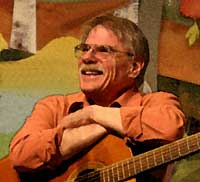
Gordon Bok
Saturday, October 21, 2006, 8pmSt. John's Methodist Church
80 Mt. Auburn Street, Watertown
$20 at the door for all;
$15 in advance for FSSGB members, $18 in advance for non-members
(See map and calculate directions on MapQuest)
For public transportation, check the MBTA web site.
Wondering what to expect?
Listen to some sound clips on CDBaby.com!
We strongly recommend that you purchase advance tickets for this concert. They will be available at Sandy's Music (Cambridge) and The Minor Chord (Acton), or you can send a check payable to "FSSGB, Inc" to FSSGB Tickets, c/o Judy Predmore, 36 Whitman Rd. Unit 2-1, Waltham, MA 02453. (Please indicate how many tickets and whether you're a member or not.)
Gordon Bok grew up around the boatyards of Camden, Maine, and worked on many different boats from fishing boats to passenger schooners to yachts, on his own coast and others. As he sailed, he learned songs and ballads of the sea and the schooners and the fishes and fishermen. Later he sang of mythical sea folk, seals and selkies who came to him in dreams and legends. At a time when folk music was experiencing a great revival, he was a leader in preserving, collecting, creating and sharing a wide variety of rich and intensely beautiful songs of both land and sea. His mastery of both the 6- and 12-string guitars added to his already well-developed vocal expression to create an unmistakable style that has carried him through decades of being one of our most cherished folk artists. He has made more than a score of albums, and many other musicians, including Archie Fisher, Liam Clancy and Tommy Makem, have recorded his songs. In addition, his music has been used in films and published in folk music anthologies, including Rise Up Singing and his own collections, Time and The Flying Snow and One To Sing, One To Haul.
Gordon grew up in a musical home and started playing guitar when he was nine. After high school, he worked on boats and collected sea songs. During the winter, he worked as a carpenter and teacher in Philadelphia where he discovered a thriving folk music scene and began performing. Dissatisfied with the images generally portrayed of people who work on the water, he began to write songs based in the experiences of those he knew, real people whose language was honest, whose feelings were credible. These early works, songs like “Bay of Fundy”, began to get attention, as did his rich voice and fluid guitar work. Paul Stookey, of the folk trio Peter, Paul and Mary, produced Gordon’s first album for Verve.
In addition to performing in concert halls, coffeehouses and festivals throughout the U.S., Canada, Great Britain and Scandinavia, Gordon has taught choral singing and song writing at summer music camps and other gatherings. He has organized choral groups in his own community and gladly shares his knowledge with others wishing to do the same. A superb storyteller, he often introduces songs in concert with a bit of their origin and history.
Besides his countless solo appearances, Gordon toured for nearly thirty years with the trio, Bok, Muir and Trickett. He has also performed with his wife, harper Carol Rohl and with Anne Dodson, Cindy Kallet, Bob Zentz, Margaret MacArthur and other well-known folk artists. He has appeared in concert with the Paul Winter Consort and the Indianapolis Symphony Orchestra, and has been heard on NPR’s A Prairie Home Companion. He has served both as Artist-in Residence and faculty member of the College of the Atlantic. Although he never graduated from college, he received an honorary Doctor of Science degree from the Maine Maritime Academy in 1997.
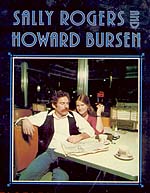
Sally Rogers and Howie Bursen
Saturday, Nov. 11, 2006, 8pmFirst Parish of Watertown
35 Church Street, Watertown
$15.00 general admission, $10.00 FSSGB members
Children 7-15: $5, Children 6 and under free
(Members' children 15 and under free)
(See map and calculate directions on MapQuest)
For public transportation, check the MBTA web site.
Wondering what to expect?
Listen to some sound clips on MP3.com!
This exciting duo, whose harmonies will send shivers up your spine, has racked up a string of successes in songwriting, studio recording, and crowd-pleasing displays of instrumental and vocal virtuosity. They have appeared on Garrison Keillor's "A Prairie Home Companion" public radio show, and have toured from coast to coast. Their first album together, "Satisfied Customers", on the Flying Fish label, gives testimony to their wide-ranging abilities.
Sally Rogers has achieved national recognition as a solo performer. Sally's second album was voted "Best Folk Album of the Year" by the National Association of Independent Record Distributors. Pete Seeger said, "Sally has a beautiful voice and has written many extraordinarily good songs that are going to reach out and touch large numbers of people. They sure are great songs!" Rogers has served as Connecticut's official State Troubadour, and also as a Master Teaching Artist for the Connecticut Commission on the Arts.
Howie Bursen is known for his warm baritone voice, devilish sense of humor, inventive guitar arrangements, and red-hot banjo wizardry. Chicago Magazine said, "stunning guitar arrangements...easily one of the finest banjo players ever heard." His song, "Small Business Blues", was recently recorded by Ronnie Gilbert, Pete Seeger, Arlo Guthrie and Holly Near on their album, Harp. Pete also included it in his book, Carry it On, published by Simon and Schuster.
Across their long solo and duo careers, Sally Rogers and Howie Bursen have been stellar exponents of traditional music (Child ballads, Appalachian mountain and dance tunes, spirituals, blues), have promoted the work of some fine contemporary song-makers (Franke, Johnson,Kahn, Rasmussen,...), and have pioneered their own compositions, from playful, gentle love songs to wry social commentary to passionate calls for political action. Their rich harmonies, at once easy and dynamic, and instrumentation (banjos, guitars, and mountain dulcimer), whether hot pickin' or sensitively understated, bring life to every piece. Their quick rapport with audiences makes their performances a delight.
In addition to a full schedule of concerts and numerous (award-winning) recordings in over more than 20 years, their lives have expanded in many directions: Sally to historical research, social and environmental activism, and (award-winning) children's music and literature, Howie to academics (Cornell Ph.D. in philosophy), telephone linework, and producing (award-winning) wines from his vineyard. These diverse experiences inform their music-making.
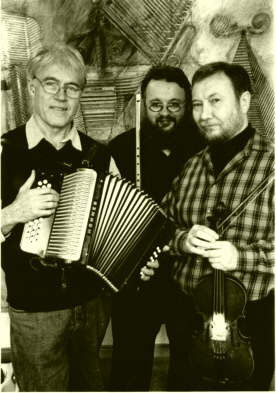
Peter Shepheard, Tom Spiers & Arthur Watson (House Concert)
Thursday, November 16, 2006, 8pmWaltham, MA
$12 for all; reservations required.
Email Suzanne Mrozak (suzanne at smrozak dot com)
for reservations/directions.
Peter Shepheard, Tom Spiers & Arthur Watson are enthusiasts for the Scottish folk tradition.
They bring together a wealth of song repertoire gleaned directly from many traditional singers they have known including well known artistes such as Jimmy McBeath, old Davie Stewart, Jeannie Robertson and Lizzie Higgins.
Tom and Arthur were members of the well respected Aberdeen based group The Gaugers along with founder member the late Peter Hall, noted folk song collector and folklorist.
Tom now lives in Auchtermuchty in Fife and Arthur lives across the Tay in Dundee. Pete Shepheard has lived many years in Fife and the three have been sharing their enthusiasm and playing together for the last several years.
Their long awaited and newly released CD Shepheard, Spiers & Watson: "They Smiled as we Cam In Springthyme" (SPRCD 1042) has been receiving excellent reviews:
- Refreshingly real and nourishingly organic Scotland on Sunday
- Storytelling in music at the highest level Living Tradition
- Go and buy a copy! Musical Traditions

The Short Sisters
Saturday, December 2, 2006, 8pmFirst Parish of Watertown
35 Church Street, Watertown
$15.00 general admission, $10.00 FSSGB members
Children 7-15: $5, Children 6 and under free
(Members' children 15 and under free)
(See map and calculate directions on MapQuest)
For public transportation, check the MBTA web site.
Wondering what to expect?
Listen to some sound clips on CDBaby.com!
Fay Baird, Kate Seeger, and Kim Wallach have been singing together for well over 20 years, and it's clear that they still sing for the genuine love of singing. Whether a cappella or with guitar, autoharp, and banjo, Fay, Kate, and Kim blend their individual voices in stunning and original harmonies.
Kim is well known as a solo performer and songwriter, and has several albums out on the Black Socks Press label. Kate is a member of the musical Seeger family, and began singing and performing in family concerts as a young child. Fay learned traditional music in a less formal but time-honored way, playing banjo at contra dances and singing with friends
In concert, the trio celebrates life and its seasons, with songs both traditional and new: offbeat rounds, musical curiosities and chorus songs, songs about work, family and love, Sacred Harp hymns, ballads, and much more. The Short Sisters favorite songs, funny or moving, thought-provoking or frivolous, convey optimism about tackling lifes challenges at the end of the twentieth century. Their delight in harmony, humor, and high spirits captivates their audiences.
One of Folk Song Society's goals has always been to provide opportunities for people to make music together for the pure pleasure of it. The Short Sisters are a perfect example of folks being brought together by this joy of music making. The three began singing together in 1979, initially as part of larger groups, most notably Norumbega Harmony, an eastern Massachusetts group that sings Sacred Harp music. By 1984, when they'd been together for five years, they started to take themselves more seriously, and released their first recording, the Short Sisters Short Tape. Since then, they have performed steadily at festivals and clubs all, and have produced three more albums: A Little Gracefulness, A Planet Dancing Slow, and Live from Four States.
As Dick Pleasants has said of the trio, "It's wonderful when friends can make good music together." Hope you'll join us for a lively evening with these friends and their good music!
Pub Carol Sing
Sunday, December 3rd, 2006, 2-5pmin the back room at Doyle’s Café
3484 Washington St
Jamaica Plain, MA
(617) 524-2345
Free!
Sponsored by the Folk Song Society of Greater Boston and the West Gallery Quire
Carols from the Sheffield, West Gallery, and Sacred Harp traditions (as well as some standard favorites)
With special guests, The Paper Bag Mummers, providing merriment and mayhem!
Free! (but we will pass the hat for the waitress)
Music will be available
Email Suzanne Mrozak (suzanne at smrozak dot com) for more information
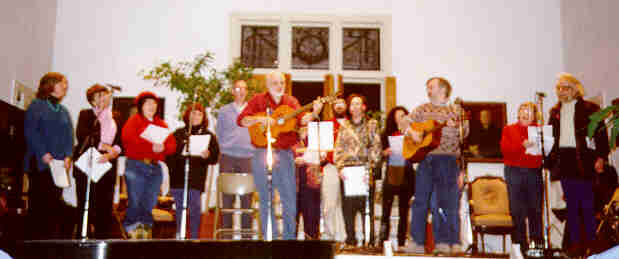
Annual FSSGB Members' Concert
Saturday, January 20, 2007, 7:30pmFirst Parish of Watertown
35 Church Street, Watertown
$10 General Admission, $8.00 FSSGB Members
Children 7-15: $5.00, children 6 and under free
Members' children 15 and under free
(See map and calculate directions on MapQuest)
For public transportation, check the MBTA web site.
Wondering what to expect?
Listen to some sound clips on CDBaby.com!
The annual FSSGB members' concert is always a popular event. Our members perform songs which range from traditional ballads to original compositions, and from instrumental to a cappella pieces. Some of the instruments that have been played at this concert in the past include violin, cello, banjo, mandolin, guitar, bass, keyboard and concertina. Some FSSGB members who have performed at this event have gone on to have successful performing careers, such as Elijah Wald, Mark Ryer, Fool's Errand and Merle Roesler.
Many new musical relationships have formed as a result of the members' concert, including our hosts for the evening, Two for the Show - Ellen Schmidt and Jake Kensinger! They began playing together many years ago for a members' concert, and have since become very active performers in the local folk music scene.
Members are invited to sign up to perform - one song or a spoken word piece. You may perform alone or with others. Some performers have been participating for years; others will do so for the first time. Children are most welcome. The program will feature professional musicians as well as living room folk enthusiasts. All are welcome. The Midweek Singers are an important part of the program as are the many members who show up especially for this event. The audience is always supportive and lively.
To sign up, you may contact Ellen by email at eschmidt01742@yahoo.com by January 10th.

David Jones
Saturday, February 3, 2007, 8pmFirst Parish of Watertown
35 Church Street, Watertown
$15.00 general admission, $10.00 FSSGB members
Children 7-15: $5, Children 6 and under free
(Members' children 15 and under free)
(See map and calculate directions on MapQuest)
For public transportation, check the MBTA web site.
David has an enormous repertoire of folksong from both sides of the Atlantic. He has performed throughout his native Britain and North America at festivals, clubs, and colleges, singing songs from the great days of sail, Music Hall favorites, traditional ballads, and the works of contemporary writers. He sings both a capella and with guitar or concertina accompaniment and involves his audience in refrains and choruses ranging from boisterous to sentimental.
David has played feature roles in both Equity and non-Equity theatrical productions, and his training as a structural engineer has led him to many ports of call in the United States as well as a four-year sojourn in East Africa.
As well as performing solo, David sings with Tom Gibney and Heather Wood in Poor Old Horse.
" . . . A polished craftsman with a warm glowing quality." - New York Times
" . . . lively songs and outrageous humor left a joyous audience shouting for more . . . a singer of depth and sensitivity" - Sing Out! Magazine
" . . . beautifully ornamented, subtly disciplined, sprightly and yet powerful singing." - Come for to Sing
Ballads and Sea Songs of Newfoundland
Saturday, March 10, 2007, 8pmFirst Parish of Watertown
35 Church Street, Watertown
$15.00 general admission, $10.00 FSSGB members
Children 7-15: $5, Children 6 and under free
(Members' children 15 and under free)
(See map and calculate directions on MapQuest)
For public transportation, check the MBTA web site.
in Waltham, admission $15
Reservations for workshop, email suzanne at smrozak dot com
This concert is being held in honor of the publication of the new edition of "Songs and Ballads of Newfoundland" by Elisabeth Bristol Greenleaf and Grace Yarrow Mansfield. The book, published by Harvard University Press in 1932, was the first major collection of Newfoundland song made available to scholars and the general public. It also contained the first ethnography of singing in Newfoundland, making it perhaps even more valuable today than it was three quarters of a century ago to those who study and cherish Newfoundland and Canadian culture. Performers will include Shelley Posen, Joe Hickerson, Ruth Perry, Suzanne Mrozak, and more.
The concert will bring together song scholars representing the major North American folksong archives (the Canadian Museum of Civilization, Memorial University of Newfoundland Folklore and Language Archives, the American Folklife Center at the Library of Congress), as well as eminent contemporary performers of traditional music. We hope to play a recording of Elisabeth Greenleaf made available by her granddaughter, who is a local contra dance caller. Our goal is to show why the collection has been through several printings in the 75 years since it was first published, and how it has grown in stature and value as a document of traditional culture.
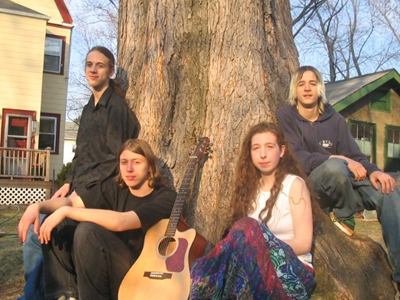
Benefit concert with Jaded Mandolin
Saturday, March 24, 2007, 8pmFirst Parish of Watertown
35 Church Street, Watertown
Admission: Adults: $15, Students: $9,
Family: $32 (unlimited family size)
Children (12 and under): Small Donation - contribute what you can
For advance reservations, call 617-924-6143.
(See map and calculate directions on MapQuest)
For public transportation, check the MBTA web site.
Proceeds from this concert will benefit the Charles River Watershed Association.
"If they're Jaded, I must be decrepit." -- Danielle Dreilinger, WBUR
It's an unlikely situation: a bunch of teenagers playing traditional American folk music and bluegrassy originals with tremendous energy, rich vocal harmonies and raging fiddle and mando breaks. But what gives Jaded Mandolin its character is this: it's old music played in a new way. The tight and melodic arrangements are not typical of most traditional sounding groups. But roots are important, and Jaded Mandolin stays true to their roots. In the words of local bluegrass giant Sean Staples: "Jaded Mandolin brings an infectious youthful energy and enthusiasm to their music, though there is an obvious respect for the history of the songs. Seeing them, I feel like the future of the tradition is in good hands." And in the words of local songwriter/cantab sound engineer P. J. Shapiro: "Jaded Mandolin has developed a recognizable musical style of their own in a relatively short time. They do a terrific job of respecting their traditional material without embalming it."
The quartet formed in March of 2005. It was a twist of fate that brought them all together with their instruments one afternoon. Everything seemed to click, and since then the band has been making a name for themselves in the Boston folk scene. Through frequenting open mikes, a following quickly began to develop. After a debut performance in May at the Nameless Coffeehouse, the band's identity took shape. They impressed booking agents all over Boston, especially Maureen Leblanc of the Nameless: "Among Jaded Mandolin's major strengths are faithfulness to the tradition of the music they play and a firm footing in the future of that music. Members Eric McDonald, Michael Vitale, Adrian Rigopulos, and Molly Pinto-Madigan play and sing traditional material, as well as original songs, with energy and joy. Vitale's song, "Echo of a Lamentation," is reminiscent of something found in some dusty old Zen hymnal. Regarding adversity and the skill of learning from it, Pinto-Madigan plaintively sings, "In the echo of a lamentation, There you'll find joy quietly waiting. Even though the shadows do fall, The light that brings them will drive away them all." Jaded Mandolin is good medicine, for hard times."

Sparky and Rhonda Rucker
Saturday, April 7, 2007, 8pmFirst Parish of Watertown
35 Church Street, Watertown
$15.00 general admission, $10.00 FSSGB members
Children 7-15: $5, Children 6 and under free
(Members' children 15 and under free)
(See map and calculate directions on MapQuest)
For public transportation, check the MBTA web site.
Sparky and Rhonda Rucker have performed throughout the U.S. and internationally, singing songs and telling stories from the American tradition. Sparky Rucker has been performing over thirty-five years and is internationally recognized as a leading folklorist, musician, historian, storyteller, and author. Rhonda Rucker is an accomplished harmonica and piano player, and also adds vocal harmonies to their songs. She has developed her own unique style of playing harmonica, which complements their music, whether they are playing railroad songs, Appalachian music, blues, slave songs, Civil War music, gospel, work songs, cowboy music, ballads, or Sparky Rucker's original compositions.
Together and separately, they've won numerous awards including the 2001 Storytelling World Award Honor Title and a nomination in 1991 for the W.C. Handy Award for Best Traditional Recording for "Treasures & Tears". Together they've recorded four albums, toured extensively, appeared at festivals, on radio and TV, including an appearance in the Time-Warner TV miniseries "The Wild West".
Pete Seeger says ""Sparky Rucker is unique! He'll make you glad to be alive and struggling," and Loyal Jones of Berea College in Kentucky says "Sparky and Rhonda put on a good concert, with plenty of heart, soul, and good feeling. It is always a joy to see and hear them."

Brian Peters (House Concert)
Friday, April 13, 20077pm potluck, 8pm concert
W. Concord, MA
$12 for all; reservations required.
Email Suzanne Mrozak (suzanne at smrozak dot com)
for reservations/directions.
The Folk Song Society is pleased to present Brian Peters in concert. Brian packs a powerful voice, a mastery of his instruments, and a wonderful mix of traditional and modern repertoire into his performances. He is acknowledged as one of England's star talents on the folk music circuit today.
As one of England's leading squeezebox players, Brian Peters is a master of the melodeon (button accordion) and Anglo-concertina. As a guitarist, he is a fine exponent of the open-tuned English folk style, and a sensitive accompanist. And every song he sings with his powerful voice has something good to offer, whether it be from the tradition, or from his varied modern repertoire.
In addition to performing in countless folk clubs around the world, Brian Peters has taught both instrumental and singing techniques workshops worldwide.
Please contact Sallie at salliesatt at comcast dot net to talk about what to bring for the potluck. Feel free to show up any time after 6:30pm if you have food that needs to be heated.
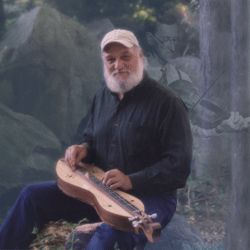
Don Pedi
Saturday, May 5, 2007, 8pmFirst Parish of Watertown
35 Church Street, Watertown
$15.00 general admission, $10.00 FSSGB members
Children 7-15: $5, Children 6 and under free
(Members' children 15 and under free)
(See map and calculate directions on MapQuest)
For public transportation, check the MBTA web site.
This concert is being held in conjunction with the CCAE Spring Dulcimer Festival.
Don Pedi's music sounds with a clear melody and a pureness of spirit. It surpasses the boundaries of musical style, unfolding a timeless expression of human creativity. For over thirty years Don has amazed and delighted audiences with his unique "Fiddle-Pick" style of playing the dulcimer. Drawing on decades of association with many of the best musicians in the southern mountains, as well as his deep commitment to preserving the old music, Don carries on the tradition in an exiting and innovative fashion unrivaled on the Mountain Dulcimer. Rhythm and melody match the fiddles, up to speed, note for note, creating an ancient sound, that strikes a chord with the most modern listener.
Don won first place in the first contest he ever entered at the 1974 Fiddler's Grove Festival, in Union Grove, North Carolina. Before retiring from festival competitions in 1982, he had won over thirty first place trophies and awards. Don Pedi has performed with a great many musical legends. He currently performs solo, as a duo with Bruce Greene or in a group with Bruce. Don and his music appear in the motion pictures "Songcatcher" and "The Journey of August King". Since 1985 Don has served as an on air host at NPR affiliate WCQS-FM in Asheville, NC.
A concert with Don Pedi showcases his amazing abilities on the Mountain Dulcimer, and features tunes, songs and stories from a variety of traditional sources. Don's impeccable taste and musical mastery have served to enliven gatherings that range from playing for the Governor and his cabinet, to the opening ceremonies for the N.C.Arboretum and the Lewis Rathbun Wellness Center. The sound of the old tunes being played on the dulcimer offers not only good listening, but an element of a musical heritage that has been passed on for generations.
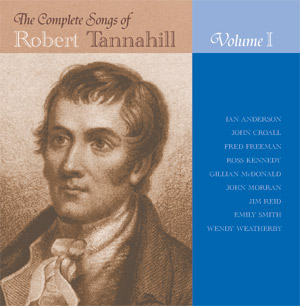
Robert Tannahill: an Illustrated Lecture by Dr. Fred Freeman
Friday, June 1, 2007, 8pm-9:15pm,followed by a British Isles song swap
Newton Corner, MA
$12 for all; reservations required.
Email Suzanne Mrozak (suzanne AT smrozak DOT com)
for reservations/directions.
Robert Tannahill (June 3, 1774 - May 17, 1810) was a Scottish poet known as the "Paisley Poet". He was born in Paisley to a weaving family and was apprenticed in the same trade from the age of 12. After a short period of working in Bolton around 1800, Tannahill returned to Paisley to support the family in time of illness. In the years which followed, his interest in poetry and music blossomed and his writings began to appear in such publications as The Scots Magazine. In 1810, he died by his own hand, drowned in the Paisley Canal.
Perhaps the most enduring legacy of Robert Tannahill is his poem The Braes of Balquidder (c.1742), the basis for the traditional Scots ballad "Will Ye Go Lassie, Go."
Dr. Fred Freeman began to arrange and record "The Complete Songs of Robert Tannahill - Vol I" in November 2005, with a view to releasing the 5 volume set by 2010, the Tannahill bicentenary year. Volume I features superb singers and players, young and old, from every region of Scotland. For Dr. Freeman this is much more than an academic exercise; it is contemporary Scottish folk music, featuring the most outstanding folk musicians of our time and drawing upon Tannahill's extensive background in Scottish as well as Irish traditional music. In this connection, various Irish, British and European musicians join their Scottish counterparts in the project in accordance with what would obviously have been Robert Tannahill's wishes.
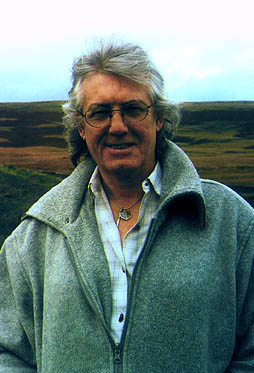
Louis Killen (House Concert)
Friday, June 15, 2007, 8pmNewton Corner, MA
$12 for all; reservations required.
Email Suzanne Mrozak (suzanne at smrozak dot com)
for reservations/directions.
Louis Killen is one of the most widely influential musicians of the folk revival and a key voice of English traditional song. He is a hard-core, unadulterated folksinger whose passionate delivery is matched by a deep and wide-ranging knowledge of the songs and the working people who made them.
Born and raised in the heart of the industrial North East of England, he came early to a love of folk music. Nurtured by a singing family whose tastes ran from liturgical music to cowboy songs, Irish ballads, grand opera, blues, jazz, classical and local Music Hall, the dominant music in his life has been the folk music of the British Isles. Louis's family background is predominantly Irish: his paternal great-grandfather brought his family from County Mayo to the banks of the River Tyne in 1852. His grandfather married a Scotswoman and his father an Irishwoman.
Though his ancestry is largely Celtic, being a native Tynesider has stongly affected his approach to music. Tyneside is an area that absorbs other cultures and converts them into its own - to this day, even after thirty-five years living in the USA, Louis's speaking accent still denotes his roots. The mixture of Irish, Scots and English living in the coal-mining and industrial region known to the ancients as Northumbria sets it apart from the rest of England, pulling into it the musical traditions of all three countries while maintaining its own distinct musical style. Louis Killen draws on all four traditions to bring a wide range of folk music to his audiences.
To these four is added the Anglo-American tradition of deep-water shantying and sailor ballads common to both nations. Louis's first-hand experience working aboard brigs, brigantines, schooners and sloops in the late '60s and early '70s put him in the forefront of the current revival of maritime music on both sides of the Atlantic.
In a career spanning over forty years, with more than thirty-five albums/CDs to his credit, Louis Killen's influence as a performer, teacher and inspiration to others is unparalleled. Both as a singer and as a concertina player - an instrument whose use for self-accompaniment he pioneered - his impact on the folk song movement is hard to overstate. He is the folksinger's folksinger.

Danny Spooner (House Concert)
Thursday, July 19, 2007, 8pmW. Concord, MA
$12 for all; reservations required.
Email Suzanne Mrozak (suzanne at smrozak dot com)
for reservations/directions.
There will be a potluck dinner before the concert, starting at 6:30pm.
Danny Spooner's passion is the expression of British and Australian culture through folk music.
Born into a working-class family in the East End of London prior to World War II, Danny Spooner grew up with the traditions, music and folklore of a typical Cockney family. At 13 he left school and worked on a sailing barge which plied the Thames and the south coast of England. Under the instructive eye of Bob Roberts, Danny learned British songs and was enrolled in libraries along the coast to read their stories. He was apprenticed to the Thames as a Waterman and Lighterman, and after 6 years had earned his Freeman of the Thames. Over the next 10 years he held various jobs including salvage tug and trawler skipper. This varied, almost nomadic life, has given Danny a rare real-life education in the ways of working people.
When Danny arrived in Australia in 1962, he realised that there was an audience ready, interested, and willing to appreciate these sorts of songs. He heard Declan Affley singing in the early folk scene in Sydney, and at the fabled Frank Traynors in Melbourne, heard Martyn Wyndham-Read, Brian Mooney, David Lumsden, Trevor Lucas and Margret RoadKnight. This was the engine room of the folk revival in Australia, and made Danny want to learn those songs. From Wendy Lowenstein and Gwenda Davey he understood the importance of the social context of the songs and proper attribution.
Thanks to a prodigious memory and a willingness to learn about his craft, Danny Spooner quickly developed into one of the best singers of British folksongs in Australia. Over the years he has augmented what he learned "on the job" with a vast repertoire spanning almost every part of the British tradition - as well as a respectable portion of the Australian folk heritage. He's been pleased to add American material learned from new friends - and even a Canadian-French whaling song.
Danny has performed in folk clubs all over Australia, New Zealand and in Britain on his visits home, and has appeared at every major folk festival in Australia, at which he has given a vast range of workshops on aspects of folk songs of Britain and Australia. Many of these presentations were recorded live by ABC national radio.
His passion is getting people singing, and he has inspired and encouraged many in developing their singing craft. Nothing gives him more pleasure at a festival than getting a good singing session going. "That's what folksong is about". Long described as "a living national treasure", Danny Spooner can make traditional music seem new and make new songs seem old.
